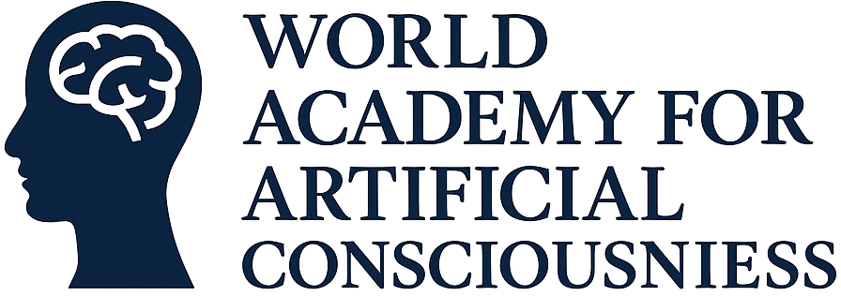_0.jpg)
We are pleased to announce that Jean-Pierre Changeux—Professor Emeritus at the Institut Pasteur and the Collège de France, and a member of the French Academy of Sciences—has been elected an Academician of the World Academy of Artificial Consciousness (WAAC) in recognition of his foundational contributions to the theory of allosteric receptors, the first identification of a neurotransmitter receptor, and neural models spanning synaptic selection to the mechanisms of conscious access.

Over decades of work, Professor Changeux has pursued a systematic, cross-scale program unifying the molecule–synapse–network levels. With Jacques Monod and Jeffries Wyman, he proposed the Monod–Wyman–Changeux (MWC) model in Journal of Molecular Biology (1965), establishing the classic framework for allosteric regulation of receptors and ion channels; in the 1970s his team isolated and identified the nicotinic acetylcholine receptor (nAChR), widely recognized as the first neurotransmitter receptor to be identified, and advanced its structural and functional characterization; he then proposed in PNAS (1973) the theory of “epigenesis of neural networks by selective stabilization of synapses,” and further articulated synaptic selection and competition during development in Nature (1976). At the systems level, together with Stanislas Dehaene and Michel Kerszberg, he introduced the Global Neuronal Workspace (GNW) model in PNAS (1998), linking computational mechanisms of conscious access to whole-brain broadcasting dynamics. These contributions provide a firm foundation for understanding the biological basis of consciousness and offer important guidance for the modelability, verifiability, and controllability of artificial consciousness systems.
- Global Collaboration and Academic Ecosystem
Academicians of the World Academy for Artificial Consciousness hail from institutions such as Harvard University, the Massachusetts Institute of Technology, the University of Cambridge, the University of California, the French Academy of Sciences, the University of Padua, the University of Queensland, Columbia University, and the University of Exeter. Honorary Academicians come from a wide range of countries and regions, including the United States, the United Kingdom, France, Germany, Italy, Sweden, Canada, Australia, Spain, and China. In addition, leading scientists from prominent research institutes and technology companies—such as Google, the Allen Institute for Brain Science, and ZEEKR—also participate.
- About WAAC

The World Academy for Artificial Consciousness (https://www.waac.ac/) is a global academic institution established in Paris in 2025. Its mission is to advance frontier research and international collaboration in artificial consciousness through the integration of science, technology, and philosophy. The Academy publishes open research, policy recommendations, evaluation standards, and more. The current President is Academician Yucong Duan, and the Secretary-General is Dr. Yingbo Li. The Honorary Academician List: On May 3, 2025, WAAC released its first batch of Top 100 Honorary Academicians, recognizing scholars who have made foundational or leading contributions to the theory of artificial consciousness.
